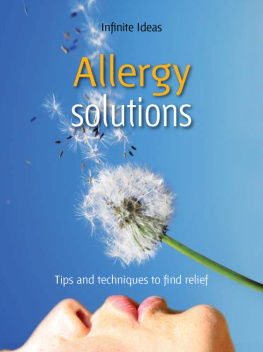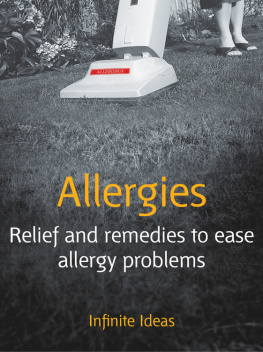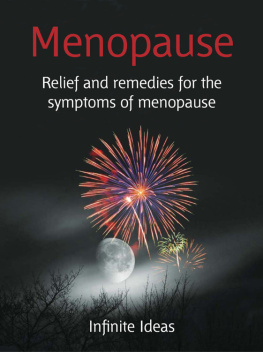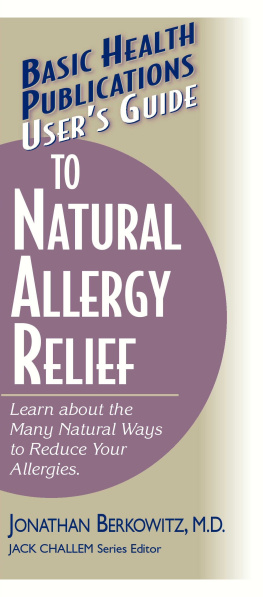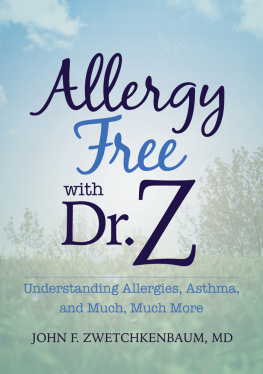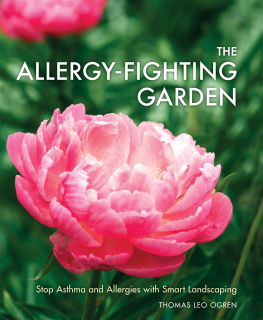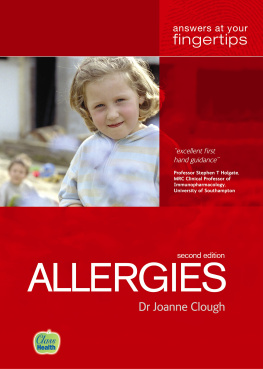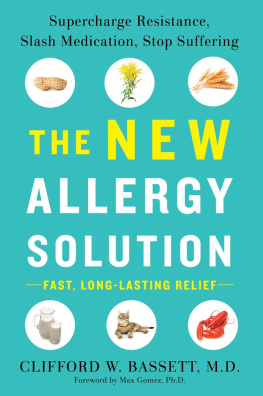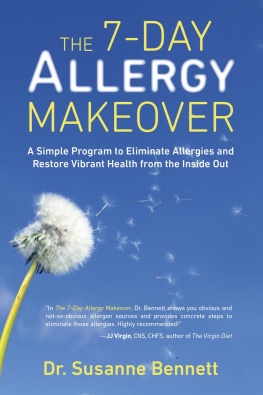Allergy solutions
Tips and techniques to find relief
Infinite Ideas

8. Keep it local
A spoonful of sugar may help the medicine go down, but a spoonful of honey helps soothe all sorts of ailments too. Find out how supporting your community bees may help your allergies at the same time.
Bees are clever little things. If a bee finds a particularly good source of nectar, it flies the shortest route back to the hive hence the term beeline.
Bees are also very generous and tell the other bees where to find the nectar by performing a dance routine. If you suffer with hay fever you could gain from being generous and clever too, by buying and enjoying some of their delicious produce (thats their honey, not their maggots).
If it hurts when you bang your head against the wall, you dont keep on doing it, do you? No, you stop it, since this way the pain should go away. Or you avoid doing it in the first place. This is the most basic principle of keeping free of allergy symptoms too if youre susceptible. For example, if its a particular food that sets you off, then its best to keep it at arms length, or in the packet. Likewise, if grannys cats play havoc with your breathing, then keeping away from them is a good idea.
Hay fever is the same. Well almost. Pollen sets your eyes and nose running, so you are advised to avoid it. Thats the mantra. Stay out of its way the best you can. Protect yourself by whatever means shades, sprays, staying indoors if necessary. So how does honey help with hay fever? Its still not precisely understood, but popular belief goes something like this. The pollen that jumps up your nose and into your eyes when you go outdoors that is, the pollen local to where you live is often the main trigger for your hay fever attack. Locally made honey likewise contains these irritating pollens, caught up in the nectar collected by the bees. Its believed that giving the body a regular tiny dose of these pollens, the ones that upset you, helps the body build resistance to their effects by teaching it not to react to them. So, when the hay fever season arrives and pollen is all around, the body is already prepared and protected. Its a similar principle to the process of desensitising people by giving them injections of the specific pollen they are allergic to only using a spoon, not a needle. So a daily teaspoon of locally produced honey could help keep your hay fever symptoms at bay.
Awareness of the benefits of honey is not new. Honey was one of the most common ingredients in medicines in ancient Egypt and has been used for centuries to benefit health. Honey can help to fight infection because of its antibacterial properties, and its often used to treat burns and open wounds. More recently researchers from New Zealand have suggested that honey made from the manuka flower could be used to treat stomach ulcers. Honey is a good cure for hangovers, too, since its high content of sugar helps to speed up the processing of alcohol by the liver. Its also a good general pick-me-up.
So enjoy your honey and consider this. If you think that you cover a lot of miles in your job then spare a thought for the bees, which will have to fly about 55,000 miles to make just one pound of honey.
Get yourself a jar of honey that has been made local to where you live. Have a teaspoonful each day, either neat, mixed with warm water or added to your breakfast cereal. Doing this, youll be getting a tasty treat and your hay fever may be a thing of the past.
Defining idea
The only reason for being a bee is to make honey. And the only reason for making honey is so I can eat it.
Winnie the Pooh
9. Do the shake and vac
Heres why giving your home a good going over with the vacuum cleaner not only puts the freshness back, it evicts unwanted guests that trigger allergy symptoms too.
Some people love to vacuum, others simply loathe it. Theres no escape because, one way or another, if youre to avoid being up to you neck in dust and allergy symptoms it has to be done.
Many people find vacuuming relaxing. Im not joking. The gentle movement and humming can be very soothing, for babies in particular. Of course, vacuuming is a very important way of keeping allergy-triggering substances, or allergens, to a minimum, so that there is less chance of them causing you problems.
Personally, I dont mind vacuuming. Id rather do it than the ironing, for instance. I find it relaxing since whilst Im making my way around the house I listen to music. Its an opportunity to do some exercise and to do something that I really enjoy (thats the listening to music, which is something I dont have the time to do as much Id like). OK, so I dont vacuum as often as I used to because I now have a cleaner for allergy sufferers the best solution is to let someone else do the vacuuming but when I do have to vacuum its easier to see it as an opportunity than a chore.
Its not only the floors and carpets that need doing. House dust mites and their dung also congregate in mattresses and furniture, so these will need to be vacuumed too. And this needs to be done at least once a week if you suffer with indoor allergies.
Vacuuming can be good for your overall health too. In order keep your weight at a healthy level and keep your heart fit, at least 30 minutes of moderately intensive activity on at least five days a week is recommended. Alternatively, you could try to take 10,000 steps a day. Housework, such as washing the windows, can be used as part of this daily exercise quota. Vacuuming in particular can count as a moderately intensive exercise when you put some effort into it. And its cheaper than going to the gym.
One of the problems with vacuum cleaning is that a fair amount of the dust, house dust mites and other allergens that get sucked into the vacuum machine are then sprayed out again through the vacuum cleaners exhaust. This is why dusting is best done with a damp cloth the dust collects on the cloth rather than just being wafted into the air.
With regards to allergy control, theres little point vacuuming if all you are doing is sending the allergen elsewhere in the room. Its here that modern technology has come to the rescue.
Contamination control has always been important in many walks of life. For example, many years ago Swiss watchmakers covered their sensitive timepieces with a small bell jar to prevent dust from falling on them when they were not being worked on. For allergy control its vitally important that house dust mites and other allergenic particles, once sucked up into the vacuum cleaner, are prevented from leaving it again. Probably the most effective way of controlling this is the HEPA (High Efficiency Particulate Air) filter, which is now incorporated into many different vacuum cleaners and room air purifiers. HEPA filters retain 99.9% of particles in the range of 0.3 to 0.5 microns and will retain house dust mites, mould and animal allergens. Vacuum cleaners with HEPA filters have helped to make life much more comfortable for many allergy sufferers.
Whether you use a streamlined vacuum cleaner that looks like a work of art or one that looks like a throwback to an old sci-fi B movie, it doesnt matter. Just be sure to put some effort into it, keep on sucking and dont forget the corners.
When you vacuum, cover any furniture, especially the bed and soft furniture, with a clean sheet and leave at least one window open in each room being vacuumed. Once you have finished, leave the windows open for 30 minutes, and after closing the windows leave the sheets in place for another 30 minutes. Then carefully remove the sheets from the furniture. This will reduce the amount of dust that resettles on the furniture and that you will be exposed to.
Next page
